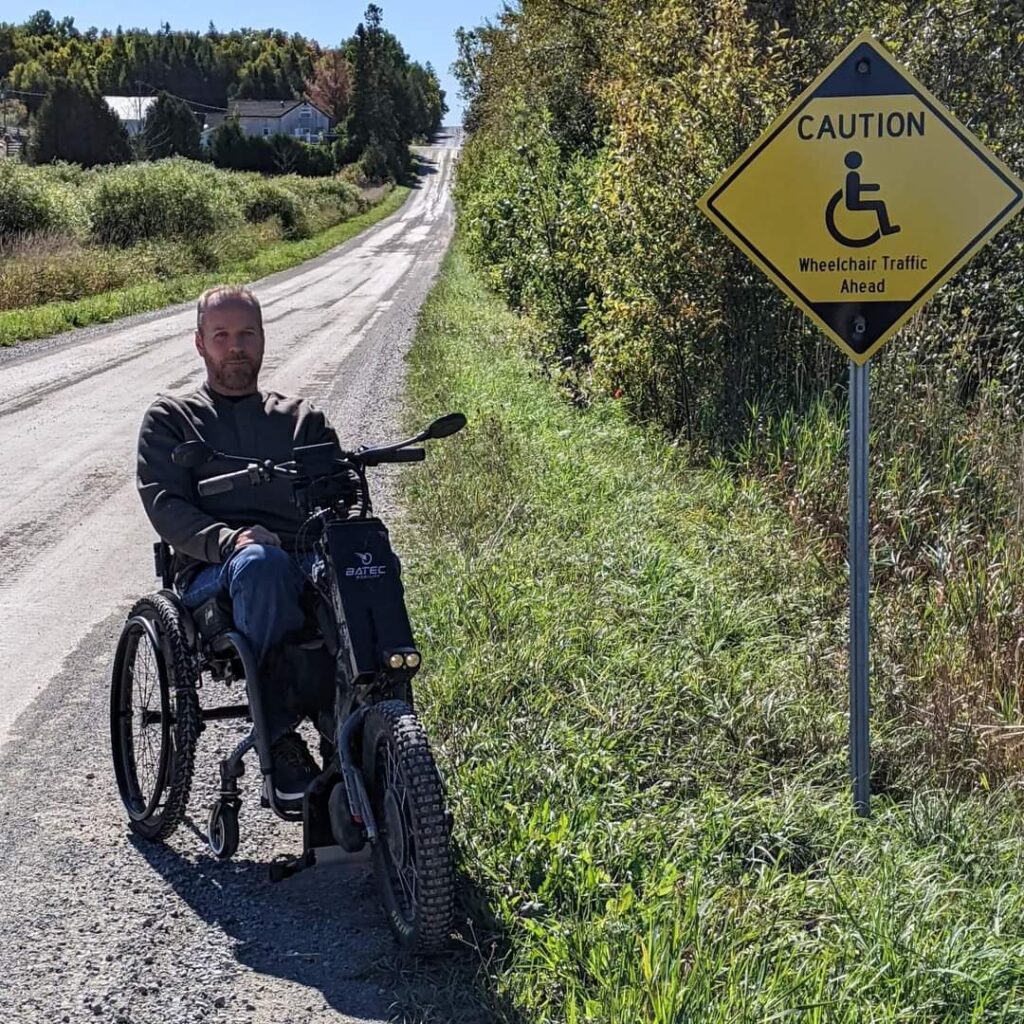Derek Moxam resides in a rural part of the province on Manitoulin Island. Accessing even essential services can be difficult for someone living with a spinal cord injury as a high-level quadriplegic. Derek was injured eight years ago and the systemic barriers to essential services are proving to be beyond frustrating.
Just this week, Derek attempted to renew his health card, soon set to expire, through the Ontario Health Services website. “I am travelling to Toronto from my rural community on Manitoulin Island to meet with my physiatrist for a bone density exam that’s been put off for several years due to COVID restrictions,” he shares. The appointment, booked months ago, falls on Derek’s birthday, when the card expires.
 Hoping to resolve the matter, Derek visited the online portal, which stresses that renewing a health card is “fast, easy and convenient.” “It definitely isn’t for people with mobility issues who are holding an existing Ontario health/photo exemption card,” he says.
Hoping to resolve the matter, Derek visited the online portal, which stresses that renewing a health card is “fast, easy and convenient.” “It definitely isn’t for people with mobility issues who are holding an existing Ontario health/photo exemption card,” he says.
Currently, the only acceptable IDs to renew online are an Ontario Identification card or a valid Ontario driver’s license, which Derek had until his injury in 2015. “It’s frustrating because the only acceptable document they are asking for is the one they were so quick to remove me from,” he shares. Within a week of being in the hospital, Derek’s license was terminated.
Derek further expresses frustration. “A valid passport, birth certificate, Ontario Hydro utility bill or accessible parking permit are not acceptable documents for online renewal. I spoke to customer service, and twice, I was told that I will need to go to the nearest Ontario Service office to have another letter drafted by my doctor and another letter releasing permission for my partner to renew my health card in person on my behalf.”
While the process sounds doable to some, it is far from accessible, especially in a rural area of the province, where accessible transportation is hard to come by. “The only service I can access is a volunteer accessible van service that must be booked in advance and is subject to availability,” says Derek. The hours of operation also mean that he would need to take time off work at his own expense, and so will his partner, who would need to assist him on the trip.
“This is a major physical and financial barrier for anyone with a disability,” he says, “The whole experience is ableist and an infringement on my human rights.”
Indeed, the urgency of the matter has caused Derek a great deal of anxiety. “Anyone with an SCI knows that physiatry appointments are not easily rescheduled. And being from a rural area, I have already made nonrefundable travel arrangements to be in Toronto for my appointments. The whole thing feels like I was dismissed and told I just don’t qualify for the same services as every Ontarian does,” he says.
Reflecting on the largely virtual world of the last three years, virtual access to essential services for those that need it most is still a major barrier that comes with physical, mental and financial strain. “In 2023, there is no place for this,” concludes Derek.






